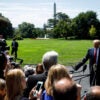In the coming weeks, the Commerce Department is expected to end the current contract between the U.S. government and the Internet Corporation for Assigned Names and Numbers, ICANN, that grants the U.S. formal approval over changes to the authoritative root zone file and the Internet Assigned Numbers Authority functions.
As observed by Lawrence Strickling, administrator for the National Telecommunications and Information Administration, “In 2014, we indicated that we felt that ICANN as an organization had finally matured to the point to allow the private sector to take over management of Domain Name System.”
But recent actions by the organization cast serious doubt about this conclusion. Earlier this year, ICANN was challenged in U.S. court regarding its failure to follow proper procedures in awarding the .africa domain name. The dilemma arose from the ICANN board’s attempt to improperly appease governments who had objected to the original delegation.
The case remains pending, and a final adjudication on the merits has yet to be made, but it should trouble all observers that the board’s apparent deference to the Government Advisory Committee has embroiled ICANN in such a long-running and contentious piece of litigation.
More recently, an Independent Review Panel (an arbitral panel for dispute resolution) condemned ICANN in no uncertain terms for its actions involving applications for domains by a company called Dot Registry.
The panel confirmed that ICANN legal staff inappropriately intervened in the report of an independent evaluator. Then it found that the Board Governance Committee, or BGC (the body responsible for responding to requests for reconsideration of board decisions and administering ICANN’s conflict of interest policy), repeatedly failed to do its job. Its decisions were described as “cavalier” and “simply not credible.”
According to the panel, “ICANN failed to apply the proper standards in the reconsiderations at issues, and that the actions and inactions of the board were inconsistent with ICANN’s Articles of Incorporation and Bylaws.”
Specifically, the board “failed to exercise due diligence and care,” “failed to fulfill its transparency obligations,” and the evidence did “not support a determination that the board (acting through the BGC) exercised independent judgement in reaching the reconsideration decisions.”
The board’s potential for similar abuse will only increase when the U.S. contract ends.
The fact that ICANN acted in such a high-handed manner in conflict with its bylaws while knowing that the transition was still in question says volumes about the presumptuousness of the staff and leadership. The board’s potential for similar abuse will only increase when the U.S. contract ends.
There is no reason to think that these problems will be resolved by the new accountability measures expected to be implemented by ICANN after the transition. When the new bylaws are adopted, the Board Governance Committee will retain its role and will continue to rely on ICANN staff to inform its deliberations. The new role for the ombudsman in reviewing and evaluating requests is positive, but the BGC and the board retain their ultimate authority.
Meanwhile, the new bylaws do not address fundamental transparency matters, nor do they address staff accountability. Those issues have been relegated to “Work Stream 2” and are not expected to be finalized until next summer—in other words, long after the transition is expected to occur and after the main leverage point of the U.S. government to ensure that community demands on accountability are met by ICANN.
Some people do not see this as a problem. They have faith that the transition will result in a wonderful new world of “geek rule” over ICANN.
Our fundamental concern is that the “rule by geeks” becomes a rule by a “cavalier ICANN board and an unaccountable staff.”
After the transition, the multi-stakeholder community is supposed to hold ICANN accountability and, in theory, the new bylaws provide new powers to enable it to fulfill this responsibility. But there is an enormous gap between providing this authority and the ability to use it.
The “multi-stakeholder” community is fractious and irresolute. The various multi-stakeholder constituencies each have separate interests and priorities and tend not to take positions on matters that do not directly affect them.
We witnessed ICANN community representatives back down when confronted by the board at key moments during the transition. Our experiences with ICANN and the multi-stakeholder community lead us, reluctantly, to conclude that the theory of multi-stakeholder oversight will be a paper tiger in practice.
The governance and transparency weaknesses of ICANN are all the more worrying considering that ICANN will soon have a financial monopoly on a critical resource (the recent auction of the .web domain brought in $135 million) and the specter of an entrenched system of control becomes very real. Far from a rule by geeks, we fear a rule by a global monopolistic self-perpetuating elite. ICANN can well be the new FIFA.
Absent the U.S. contract, ICANN has little incentive to yield to community demands for stronger accountability and transparency going forward.
We agree that internet governance should work from the bottom up, led by the private sector and civil society with guidance from technical experts, and that governmental control is undesirable and U.S. oversight is in the long run untenable.
But the recent rulings against ICANN indicate that the organization remains immature and we are gravely concerned that the new accountability measures will be insufficient. Moreover, they are incomplete, and absent the U.S. contract, ICANN has little incentive to yield to community demands for stronger accountability and transparency going forward.
For these reasons we recommend a “test drive” period of at least a year to verify that the new system works as expected and to allow for the implementation of the additional accountability and transparency measures scheduled for Work Stream 2. We should not take the fantasy leap in the dark of believing in some platonic ideal of “geek rule”—at least not without testing it.






























